Freedom of belief matters
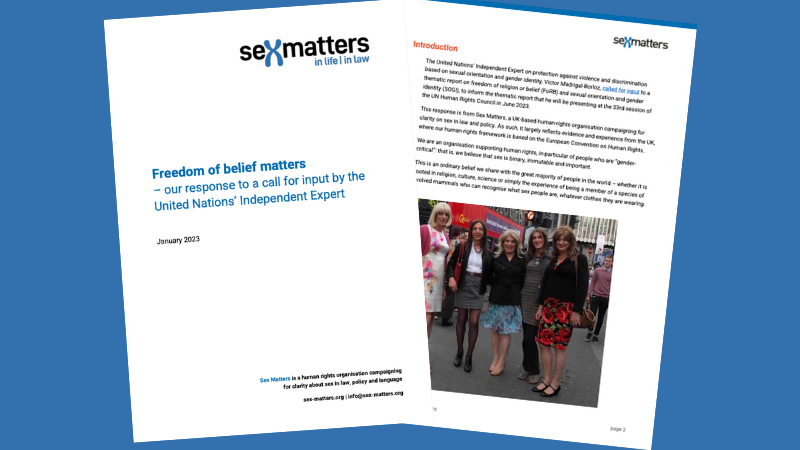
Sex Matters has submitted input to Victor Madrigal-Borloz, the United Nations’ Independent Expert on protection against violence and discrimination based on sexual orientation and gender identity. He is compiling a report for the UN Human Rights Council on the right to freedom of religion or belief in relation to sexual orientation and gender identity.
Mr Madrigal-Borloz argues that “trans women are women and arbitrary obstacles to legal recognition of gender identity violate State human rights obligations”. We disagree.
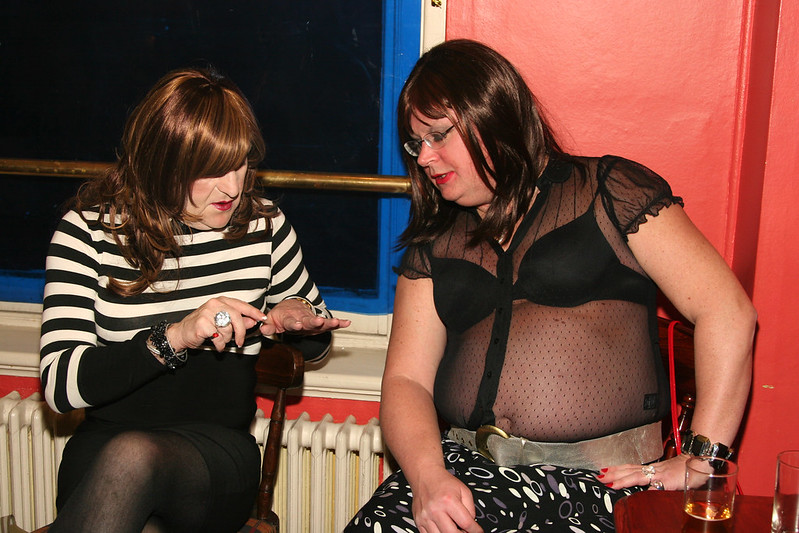
The request for input suggests that his aim is not to protect freedom of belief but to constrain it, in favour of gender ideology. Our response starts by imploring him to start the inquiry with respect for the universal human rights of freedom of belief, including the freedom to manifest beliefs. The idea that there are marginalised “SOGI” people on one side and people with “harmful” beliefs on the other is a misrepresentation of human rights and of reality. Many gay, lesbian and bisexual people do not share his belief that “trans women are women”.
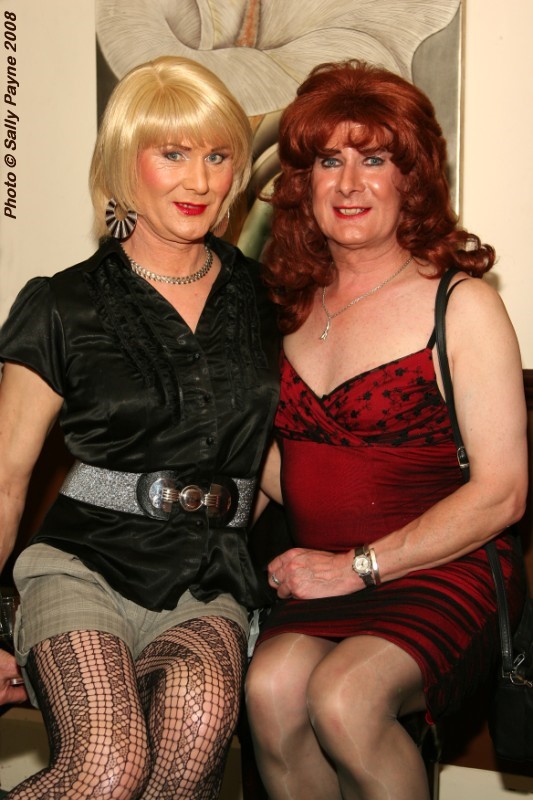
We highlight discrimination against people with “gender-critical” beliefs, and the legal cases in the UK that have challenged it. And we argue that conflating violence and discrimination, and defining recognising sex as discrimination, is a move that leads to protection freedom of belief being unjustly overridden.
If a man wants to wear feminine clothing, grow his hair, change his name and take on mannerisms associated with women (and vice versa for women who want to adopt stereotypically masculine self-presentation), or to have cosmetic surgery or take sex hormones, he should not be subjected to violence or discriminated against in services such as housing, transport and financial services, or in employment.
But other people are not required to believe (or pretend to believe) that he has changed sex, or that he shares a defining inner sense with women.
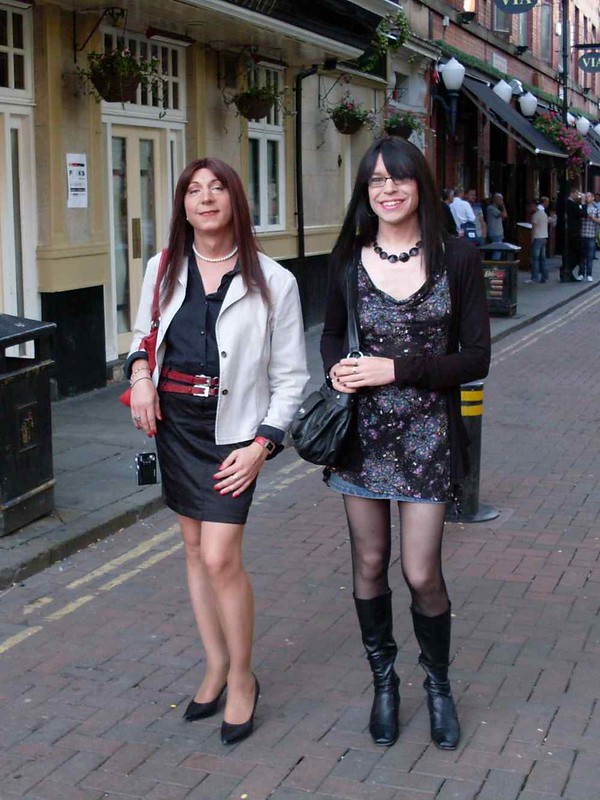
We highlight the conflict of interests between men who want to use female-only spaces and the women who rely on them for privacy, dignity and safety. It is not unlawful or illegitimate to exclude men (all men, including those who want to be women) from female-only spaces.
We note that the connection he makes between enabling legal sex change and combatting violence is spurious and unevidenced. In the UK the Gender Recognition Act was not passed to address violence, but after a case relating to the right to marry (an issue now superseded by same-sex marriage) and the qualified right to privacy of information. Argentina, which passed the world’s first gender self-ID law in 2012, has seen 82 trans people die by violence since then, while in the same period there have been five deaths of trans people by violence in the UK, none of which was linked to having or not having a GRC.
Where the rights of individuals conflict, just resolutions require good-faith, honest debate, and clear rules and laws, not vitriol and vilification. Protection against violence and discrimination for everyone depends on functioning civil and criminal justice systems, and on laws that can be understood and trusted. This in turn depends on democratic institutions, which cannot function properly in the absence of freedom of belief and freedom of expression.
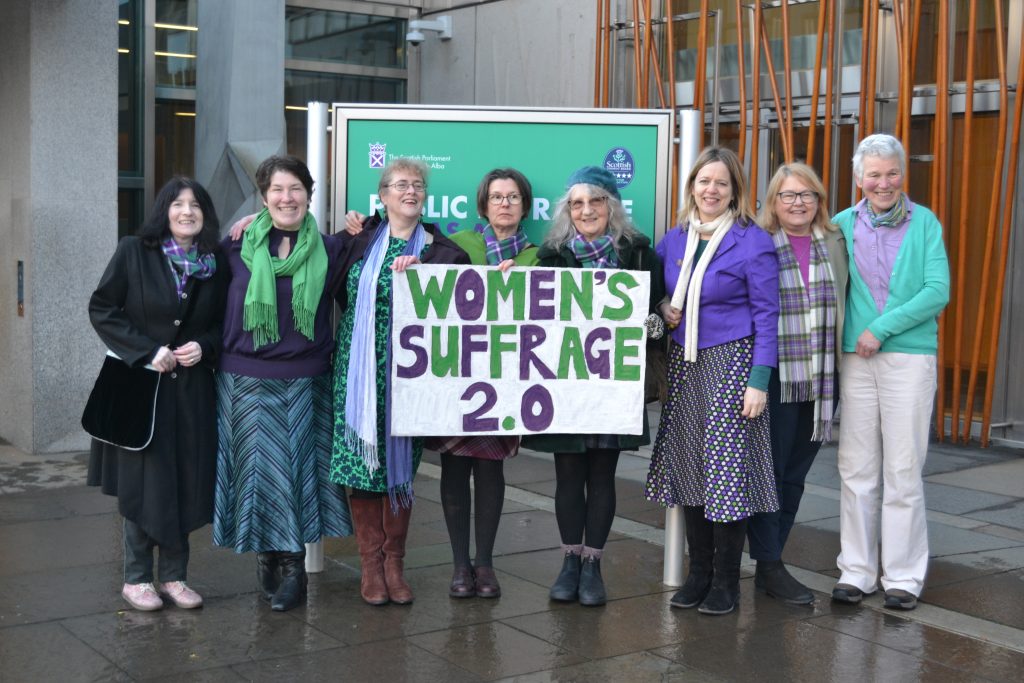
Picture credits: www.flickr.com sallypayne, www.flickr.com alessiacross, Nicole Jones
